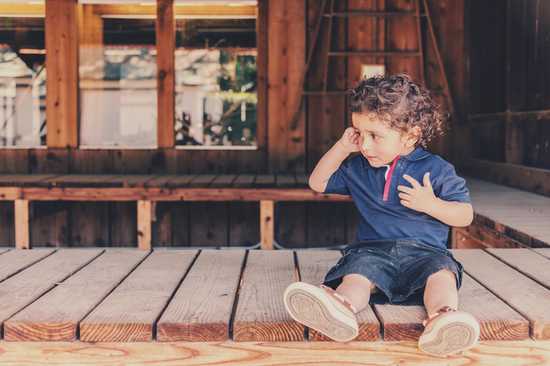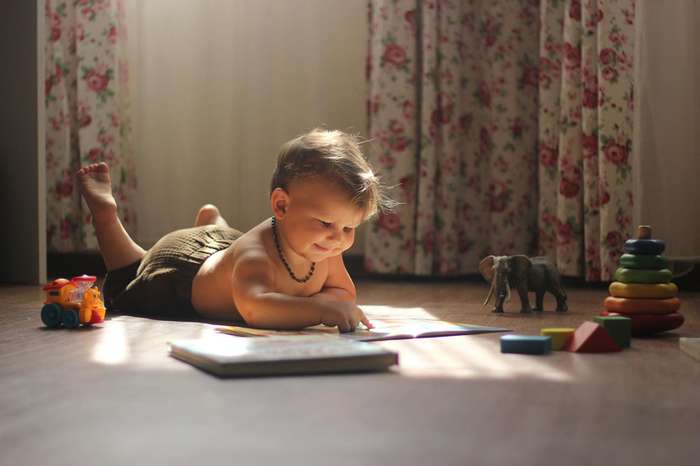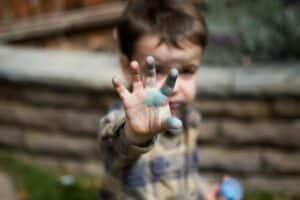Check out our 3-year-old speech checklist/ 2-year-old speech checklist to find out if your child has speech and language delays!
These checklists will help you determine if your 2-3 years old child is meeting the developmental milestones for speech.
Just make sure to keep an eye on their progress and consult with a speech therapist if you have any concerns.

Vocabulary Words For 3-Year-Olds
A 3-year-old vocabulary word list consists of the following –
Action Words
- Climb, gone, fix, kiss, dance, done, fall, hurt, all go, look, all slide.
- Up, down, off, on, in, out.
Descriptive Spelling Words
- Quiet, clean, cold, wet, silly, slow, icky, little, loud, gentle, soft, scary, fast, yucky, and dirty.
- Colors – brown, orange, black, red, yellow, purple, white, green, pink, and blue.
The 3-Year-Old Speech Checklist And Sound Development
Your toddler will be three years old. At that age, he or she:
- It’s essential to use all of the vowels (a, e, i, o, u) and certain constants properly.
- Instead of “umbrella,” for example, say the word “brella” all the time.
- Shouldn’t be removing sounds from the final letters of certain words.
Your child should also be understood by someone who isn’t in their family approximately 75% of the time.
To put it another way, three out of every four words should be clear and comprehensible to a stranger.
Grammatical Growth
Your 3-year-old will:
- Use “ing” after a few verbs.
- Should be utilizing grammatical indicators.
- Sentences should be around three words in length on average.
Social Development
At 3 years old, a toddler:
- They protect their property and possessions.
- By displaying their fingers, they may determine a person’s age.
- Copy the face of adults and elders.
- Without being prompted, shows love for others.
- Concerned when someone they know is sobbing.
- Shows a range of emotions, such as delight, frustration, crying and glee.
- Your parents won’t be confused if you don’t mix them up.
The 3-Year-Old Language And Communication Checklist
Your toddler can do the following at three years old:
- Follow the instructions carefully. For example, pass the cream.
- Write down their names, genders, and ages.
- Recognize and name a buddy.
- Sing simple songs and answer simple questions.
Literacy Development
- Listen to and participate in activities like reading books for longer periods.
- Have the ability to hold a book correctly, upright
- Can recognize logos, such as cinema, theater, or Walmart.
- Expose aspects of phonological and pre-reading understanding
Concept Development
- Understands the difference in size between things. “small,” for example, and “big” are opposites.
- Understands words that include “off,” “on,” “under,” and “together.”
- It’s time to stop thinking in terms of “soon,” “wait,” and “later.”
- Choose three objects that are identical out of a choice of four.
- Describe the size and color of things by using adjectives.
Cognitive Development
- Play with toys that have moving parts and include remote controls or advanced functions.
- In pretend play, they may act out with dolls and animals.
- With three or more pieces, they can build puzzles.
- Makes a circle with a crayon.
- Turns a book with individual pages.
- They can construct buildings with a height of 6 blocks or more.
Asking & Listening Development
- Be able to ask, “where”, “what”, and “when.”
- Can respond to body part questions, for example, show me your eyes?
What Is The Average Intelligence Level For A 3-Year-Old?
Although this may appear to be a lot, many of them are simple.
For example, I, me, my, in, out, up, down, mother or father’s name.
3-Year-Old Development Issues
If your 3-year-old has any of the symptoms below, contact a physician:
- Frequent falls while going up and downstairs.
- Simple plug-in toys are impossible for him/ her to use.
- Can’t speak in complete sentences.
- Have trouble following simple instructions.
- Pretends to be something else.
- Use no eye contact at all.
- Stuttering is excessive.
Should I Worry About My 3 Year Old Speech Delay?
If your 3-year-old is behind on their speech development, it may be cause for concern.
However, every child develops at their own pace, so it’s important to consult with a professional to determine if there is cause for concern.
A 2-Year-Old Speech Checklist
Remember that each 2-year-old is different and special.
In any case, always contact a speech-language pathologist since they are trained in thoroughly examining each youngster and discovering the precise causes of under or over development.

Sentence Development
Your toddler should be able to do the following at two years of age:
- Complete sentences that are made up of words. For example, “Milk, please” or “Any toys to share?” While it’s rare for a sentence to be one word long, it’s not unheard of.
- In the language of grammar, this is known as a “double whammy.” He/She needs to be able to ask why, what, where, and when, but not all at once.
Social Or Language Development
Your toddler can:
- Wave goodbye and go.
- Expose them as being wet in their pants.
- They address themselves by name.
- Declare that they do not want something by stating, “No.”
- Use social words like, “thank you,” “please,” “Hi,” and “goodbye” to express their gratitude.
Checklist For The Assessment Of Two-Year-Olds’ Speech: Literacy Growth
Your toddler will be able to:
- By themselves, children can turn pages.
- Pretend to read.
Concept Development
Your toddler can do the following at two years old:
- Understand the basics of directional languages, such as “up and down.”
Red Flags In A Two-Year-Old’s Speech Checklist
If any of these symptoms appear on your toddler, you’ll need to see a speech/language pathologist.
- Doesn’t get along well with others or children.
- He/She does not repeat the things you say or do.

How Many Words Should A 2-Year-Old Be Able To Understand?
“How Many Words Should A 2-Year-Old Have?” is a common question among parents.
A 2-year-old should know between 200 and 300 words.
The average number of words a one-year-old should know is between 100 and 200. This can range from minor to major words, but it’s typical for a one-year-old.
It’s very child-specific to figure out how many words a 2-year-old should have.
Each kid will develop their own preferred choice words. Remember that every toddler learns and matures at their speed.
This is because each toddler reaches developmental milestones at various ages and, in certain cases, you may not notice any development for a while as they are absorbing everything.
Advanced 2 Year-Old Milestones
As your child approaches their second birthday, they will start to show more advanced milestones in their development. Here are some things you may see:
- Your child can now follow two-step commands, such as “ please pick up your toys and put them in the toy box.”
- They can also point to body parts when asked and may be able to identify simple shapes and colors.
- At this age, most children will be using several words regularly, and their sentence length will continue to increase. They may also start to use some basic two-word phrases.
- In terms of their motor skills, your child should now be able to walk up and down stairs while holding onto a rail, and they may also be able to kick a ball. They will also start to use their hands more precisely, such as being able to unscrew the lid of a jar.
Now that you have read about the 3-year-old speech checklist/ 2-year-old speech checklist, it’s time to know a little bit about the one year olds.
How Long Should A One-Year-Old Child Talk?
After 9 months, most babies begin to talk, and they do so at a steady rate until they are 1 year old.
When it comes to the number of words a one-year-old should be capable of producing, most parents believe their child isn’t saying enough, although they should rest confident that most one-year-olds are developing appropriately.
What is the average number of words a one-year-old should utter? Between 1 and 3 phrases are common.
It’s also critical for their cognitive development and the capacity to interact with you.
Here are some important one-year-old milestones to remember:
How Many Words Can A One-Year-Old Say: Other Elements To Consider
- They can use hand movements to convey an idea to you.
- They’ll be able to point to specific regions of their body.
- Listen and follow intently to nursery rhymes or singing if that’s what they want to do.
- They will follow simple instructions.
What Should You Do To Correct Speech Of A 3-Year-Old/2-Year-Old?
If you are concerned about your child’s speech, please contact a qualified professional for more information.
With the right support, your child can learn to communicate effectively and enjoy all the benefits that come with clear speech.
- Encourage your child to talk and listen to them as much as possible. This will help them to learn new words and improve their communication skills.
- Read books together and talk about the stories. This will also help to expand their vocabulary.
- Encourage them to use gesture along with their words, such as pointing or waving, to help communicate their meaning.
- Model good speech habits for them to imitate.
Conclusion
Some common speech problems that can arise in young children include stuttering, mispronunciation of words, difficulty forming sentences correctly, and language.
If you suspect that your child is experiencing a speech problem, the above 3-year-old speech checklist/ 2-year-old speech checklist will act as your guide to take care of this problem. Early intervention is often key in helping children overcome speech difficulties.







